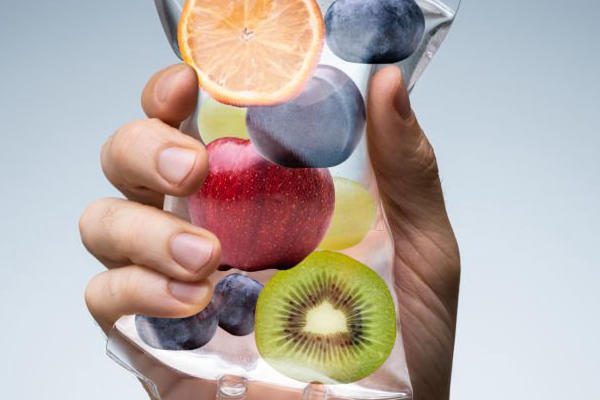The American Hair Loss Association highlights a significant concern: by age 35, most men will encounter hair loss, escalating to 85% by age 50, facing substantial hair thinning or baldness. However, hair loss doesn't exclusively affect men; research indicates that up to 40% of women will also experience hair thinning by age 40. While genetics or underlying health issues may render some hair loss irreversible, dietary adjustments hold promise for others. Incorporating specific nutrients and vitamins into one's diet has been shown to enhance hair's appearance and texture, prevent further hair loss, and, in some cases, stimulate new hair growth. Understanding the role of diet in hair health is crucial for those looking to maintain or improve their hair condition.
Omega-3 Fatty Acids for Hair Health
Neglecting omega-3 fatty acids in your diet can lead to a dry, itchy scalp, resulting in hair that looks lifeless and thin and potentially exacerbating hair loss. Rich sources like salmon, other fatty fish, walnuts, and flaxseeds (including flaxseed oil) are essential for maintaining heart health and promoting robust, healthy hair. Beyond skin deep, omega-3s also support brain function and memory, highlighting their comprehensive health benefits.
B-Vitamins: Vital for Preventing Hair Loss
B-vitamin deficiencies, particularly B6 and B12, have been linked to hair loss in women, exacerbated by factors like birth control usage and excessive alcohol consumption. Since the body cannot synthesize Vitamin B6 alone, it's crucial to intake it through diet or supplements, including IV treatments, for immediate absorption. Eggs, dairy products, and walnuts are excellent sources of B vitamins, protein, and other hair-strengthening nutrients like biotin (Vitamin B7), which is essential for combating hair loss.
Vitamin C: Essential for Hair Nutrition Absorption
Vitamin C is pivotal in nutrient absorption and is critical for preventing hair loss. A diet rich in vitamin C from citrus fruits, cruciferous vegetables, kiwi, strawberries, and leafy greens like spinach—which also provide iron, protein, and other vital nutrients—can significantly enhance hair health. Iron deficiency is a leading cause of hair loss, making vitamin C-rich foods indispensable for their role in iron absorption and antioxidant protection against free radical damage.
Zinc-Rich Foods for Hair and Scalp Health
Zinc is crucial for skin health, immune function, and hair growth. Foods high in zinc, such as kidney, liver, red meat, oysters, shellfish, scallops, pumpkin seeds, and lentils, support hair strength and scalp health. Lentils, rich in protein, iron, biotin, and folic acid, are particularly beneficial for hair vitality.
Vitamin A for Moisture and Growth
Carrots and sweet potatoes are excellent for maintaining healthy, moisturized hair and scalp due to their high beta-carotene content, which the body converts into vitamin A. A deficiency in vitamin A can lead to dry scalp conditions.
Selenium: A Key Mineral for Hair
Working alongside vitamin E, Selenium supports hair health by preventing oxidative damage and producing the body's master antioxidant, glutathione. Selenium-rich foods like Brazil nuts, tuna, grass-fed beef, and spinach are vital for detoxification processes and thyroid health, directly impacting hair growth and retention.
The Importance of Fermented Foods for Gut and Hair Health
Maintaining a healthy gut microbiome through fermented foods rich in probiotics and prebiotics is essential for overall health, including skin and hair. However, it's important to note that those with histamine intolerance may need to approach fermented foods cautiously.
Incorporating these nutrients into your diet can help address hair loss from multiple angles, emphasizing the role of a balanced diet in promoting hair health and growth.
